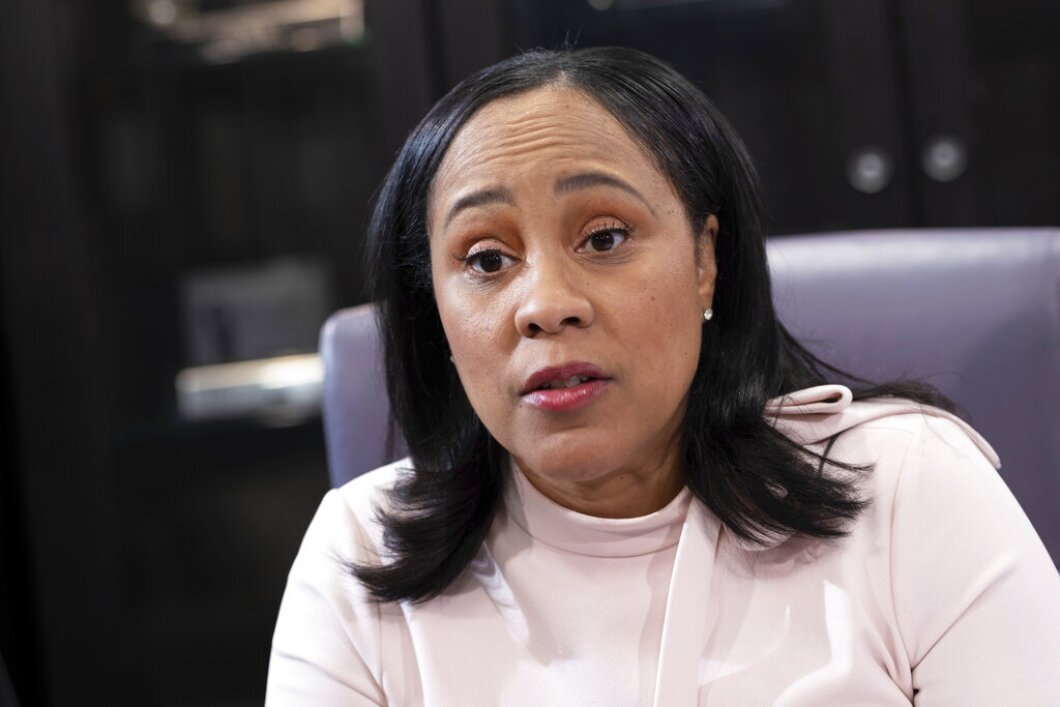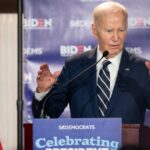
Parts of the Fulton County, Georgia, special grand jury report investigating former President Donald Trump and his allies’ efforts to overturn his 2020 election loss in the state will be released Thursday morning.
For nearly two years, Atlanta-based prosecutors have conducted a criminal investigation into interference in the 2020 presidential election, which saw Trump lose to President Joe Biden. Much of the inquiry was conducted before a special grand jury, which under Georgia law, had to present a final report on its findings, and this case included charging recommendations.
The report, which is barred from issuing indictments, represents nearly seven months of interviews with 75 witnesses ranging from Gov. Brian Kemp (R-GA) to former Trump attorney Rudy Giuliani and Sen. Lindsey Graham (R-SC).
GEORGIA JUDGE TO RELEASE PARTS OF GRAND JURY REPORT ON TRUMP ELECTION INTERFERENCE

Portions of the report slated for public release include the panel’s introduction and conclusion, along with a section in which the grand jury “discusses its concern that some witnesses may have lied under oath during their testimony to the grand jury,” according to Fulton County Superior Court Judge Robert McBurney’s eight-page order on Monday.
Here are four things to watch for when the report releases on Thursday:
What is the main target of the special grand jury?
Fulton County District Attorney Fani Willis initially requested for the special purpose grand jury to cover Trump’s call on Jan. 2, 2021, to state Secretary of State Brad Raffensperger in which he asked him to “find” enough votes for Trump to win the state.
Trump has denied wrongdoing and described the call as a “perfect” one. Separately, the inquiry also focuses on the Trump campaign recruiting an alternate slate of presidential electors in a bid to change Georgia’s results from Biden to Trump.
Grand jury concerns that some witnesses lied under oath
The forthcoming report could include descriptions of the alleged lies, though the witnesses will not be identified.
While some legal analysts have suggested prosecutors could pursue perjury charges as leverage to widen the investigation, some experts contend that charges for lying to investigators or perjury are rare due to the difficult nature of proving they relate to the main case at hand.
“In my career, I’m not aware of a perjury indictment based on grand jury testimony,” Tom Morgan, a former 12-year prosecutor, told USA Today. “It’s very rare.”
Are criminal charges “imminent?”
Willis told McBurney on Jan. 24 that a decision on whether to bring criminal charges over the investigation was “imminent.”
She previously asked the judge to keep the report sealed in order to protect a potential criminal investigation and shield the rights of possible “defendants” in the case. It’s possible that no charges will arise from the investigation.
While the full report contains recommendations for potential charges, those aspects of the report won’t be made public because some of the people named in those recommendations may not have appeared during grand jury proceedings thus far.
Will Trump charges arise from the limited report?
Clark Cunningham, a law professor at Georgia State University, signaled there is a slim likelihood for Willis to recommend any charges for Trump because he has several defenses at his disposal that could slow down the case due to his status as the former president.
CLICK HERE TO READ MORE FROM THE WASHINGTON EXAMINER
Cunningham said any potential perjury charges for witnesses involved could present an opportunity to become a cooperating witness against higher-level conspirators.
“That puts the district attorney in a position to immediately start working with defendants who might become cooperating witnesses and could really open things up,” Cunningham said.







